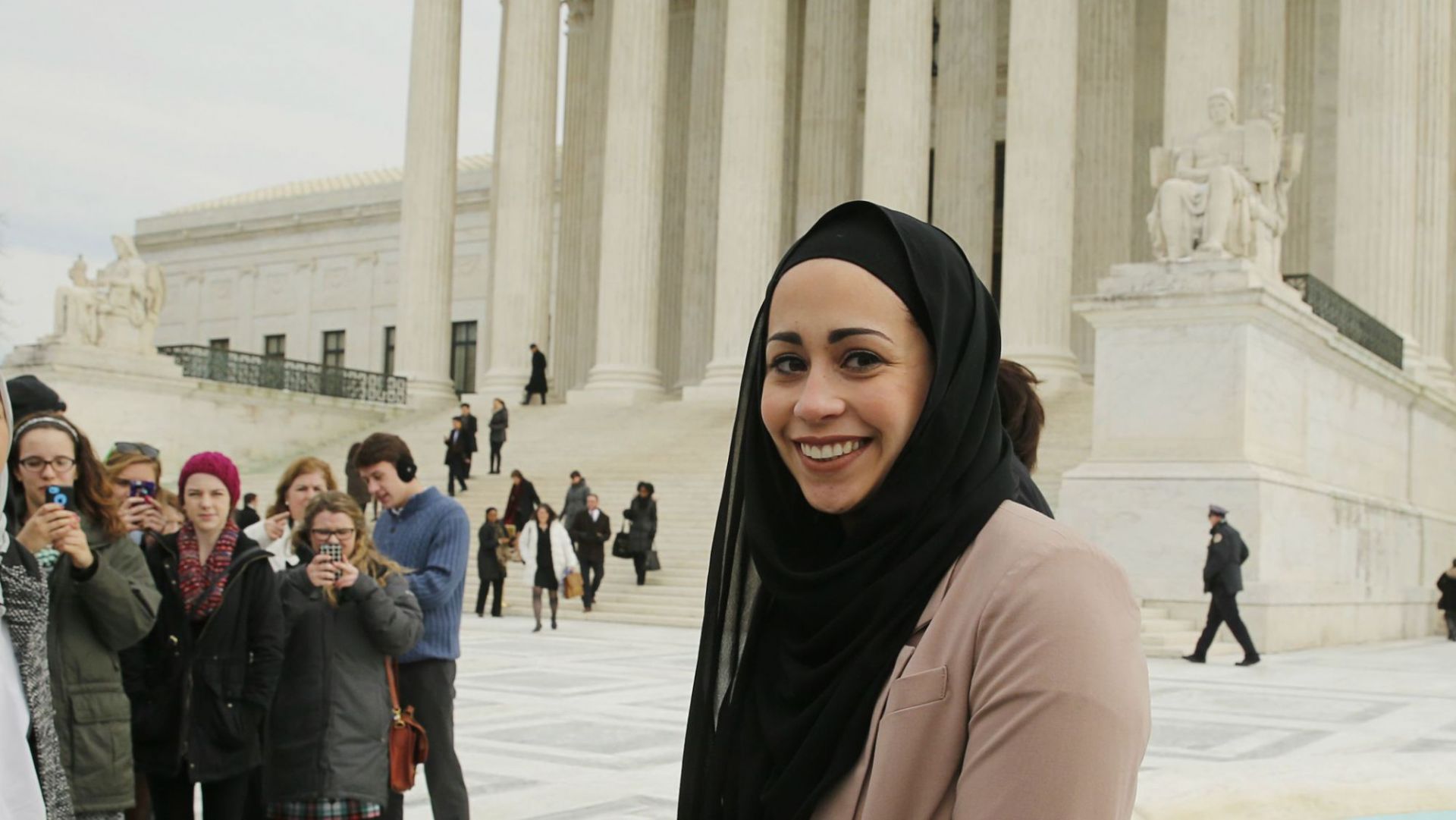Various Christians and Muslims are cheering a U.S. Supreme Court ruling that has religious liberty implications. To be specific, according to news reports, the Court ruled 8-1 in favor of a Tulsa woman named Samantha Elauf who said she was wrongly denied a job at the retailer Abercrombie Kids in 2008 because she wore a Muslim head scarf.
The Court appears to have based its ruling on the Equal Employment Opportunity Commission guidelines, under the Civil Rights Act, saying: “An employer may not make an applicant’s religious practice, confirmed or otherwise, a factor in employment decisions. For example, suppose that an employer thinks (though he does not know for certain) that a job applicant may be an orthodox Jew who will observe the Sabbath, and thus be unable to work on Saturdays. If the applicant actually requires an accommodation of that religious practice, and the employer’s desire to avoid the prospective accommodation is a motivating factor in his decision, the employer violates Title VII of the civil rights law.” (Note: Only Justice Clarence Thomas dissented. A summary of the ruling can be found here.)
Why are Christians cheering? It is not because they necessarily agree with Muslim beliefs about women wearing the head scarfs. Indeed, some dislike the very idea or sight of them, while still others respect the practice.
They are cheering because this represents a victory for religious liberty. Wearing the head scarf is considered part and parcel of practicing the Muslim faith, and therefore Abercrombie & Fitch (which is a publicly-traded company, as opposed to a privately-held company) should, in this instance, accommodate this young lady.
That leads to the bigger point. In conversations today, it is important to underscore that religion is not just what you do on Sundays or at a worship service. Religion affects our everyday lives, and that is what some people do not understand. The U.S. Constitution protects, not only the freedom of worship, it protects the free exercise of religion.
In conversations today, it is important to underscore that religion is not just what you do on Sundays or at a worship service.
For a Muslim, that could mean wearing a head scarf and following tenant of their faith, so long as they do not harm someone else. For a Jewish person, it means following certain dietary regulations or observing the Sabbath. For a Christian, it could mean religious expressions in public that some people may not like, but that we are protected to enjoy.
That, in the end, is why Christians can celebrate this ruling, along with people of other religions or no religion. We never want to see a day in this country in which our religious consciences are silenced or held captive by government. As Martin Luther, to go against conscience is neither right nor safe. So three cheers for the Supreme Court and this recognition of religious liberty.
And even more cheers to those who are actively working to share the Gospel of Jesus Christ with people of other religions or no religions, knowing that is the best exercise of religious liberty of all.
[HB1]http://www.reuters.com/article/2015/06/01/us-usa-court-scarf-idUSKBN0OH2NW20150601
Photo credit: Jim Bourg/Reuters
